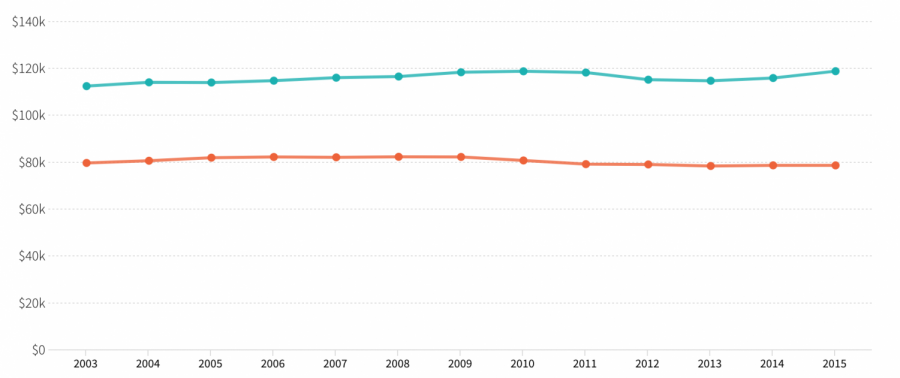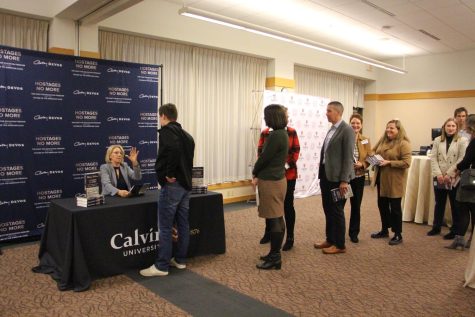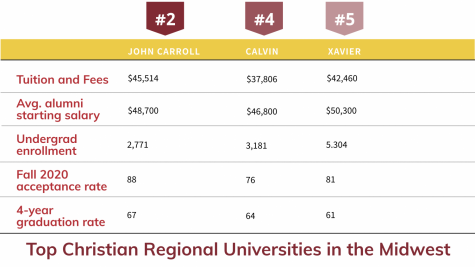Faculty pay scale receives mixed reviews from professors
The average salary for Calvin College professors (orange line) has historically been lower than the average salary for professors across 4-year private colleges (blue line). Graph courtesy Chronicle Data.
Faculty compensation continues to be an issue for discussion in the Calvin community and a point of comparison between Calvin and its peer institutions.
The vision statement of Calvin’s faculty compensation committee (FCC) is “to provide an academically excellent and distinctively Christian education for its students and a thriving academic community for its faculty.”
Professors at Calvin have four areas of responsibilities: teaching, advising, service, and research and scholarship. The expectation of workload that goes to faculty compensation is built around those responsibilities.
Calvin College also differentiates compensation among faculty based on their rank as do their peer institutions. More specifically, Calvin College endorses an egalitarian and non-hierarchical approach to faculty compensation among departments and treats all faculty the same. The existing salary scale is based on years of experience in the academic community at Calvin College regardless of which department a faculty member teaches in.
Professor Kurt Schaefer in the department of economics said, “receiving the same salary across departments at Calvin College is not quite unique, but it is distinctive about Calvin, and it is an expression that we value each other’s work equally, although it requires some departments to be extra ingenious in staffing themselves.”
However, Calvin’s stated egalitarian approach does not actually result in equal pay across all departmental programs.
Professor Joel Westra, a member of the FCC, pointed out that the difference in compensation arises because demand is high in areas where faculty could leave and go to work in other industries.
“We are egalitarian in terms of faculty, but doing so, in fact, we are hierarchical in terms of departments,” Westra said. “The tension here is also that we indirectly reward merits by experience, which is a communitarian sort of thing, but how we do that looks inconsistent, for some people are in fact getting paid for their contributions to industry rather than college community.”
The concern for Calvin College in faculty compensation is keeping balance between faculty job market and its values. Additionally, financial limitations and recent budget cuts have prevented faculty salaries from rising.
“As a matter of fairness and good faculty recruitment, Calvin College should stay reasonably close to peer institutions,” Schaefer said.
However, Schaefer also referenced the “arms race” between colleges as they try to stay ahead of each other as a factor in this discussion.
He also believes that to resist the arms race in college spending, which makes education unaffordable for low income families, slightly lower compensation is fine as long as the faculty do not feel manipulated.
“It’s a way of us expressing the uniqueness of our mission to give Christian education to people we most want to reach,” said Schaefer.







